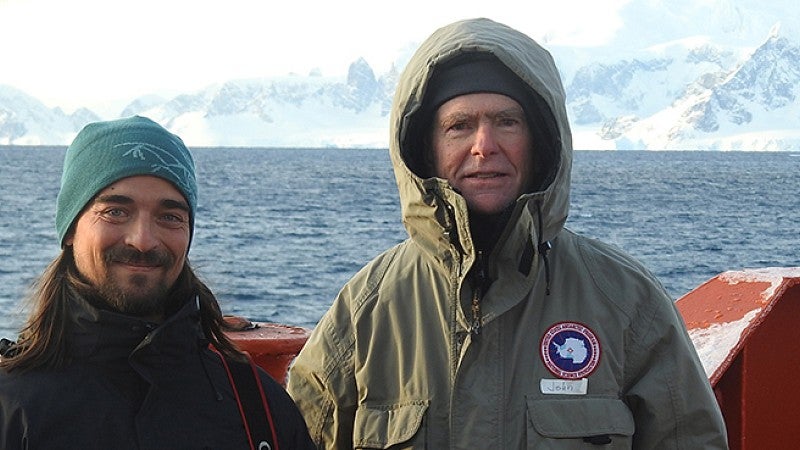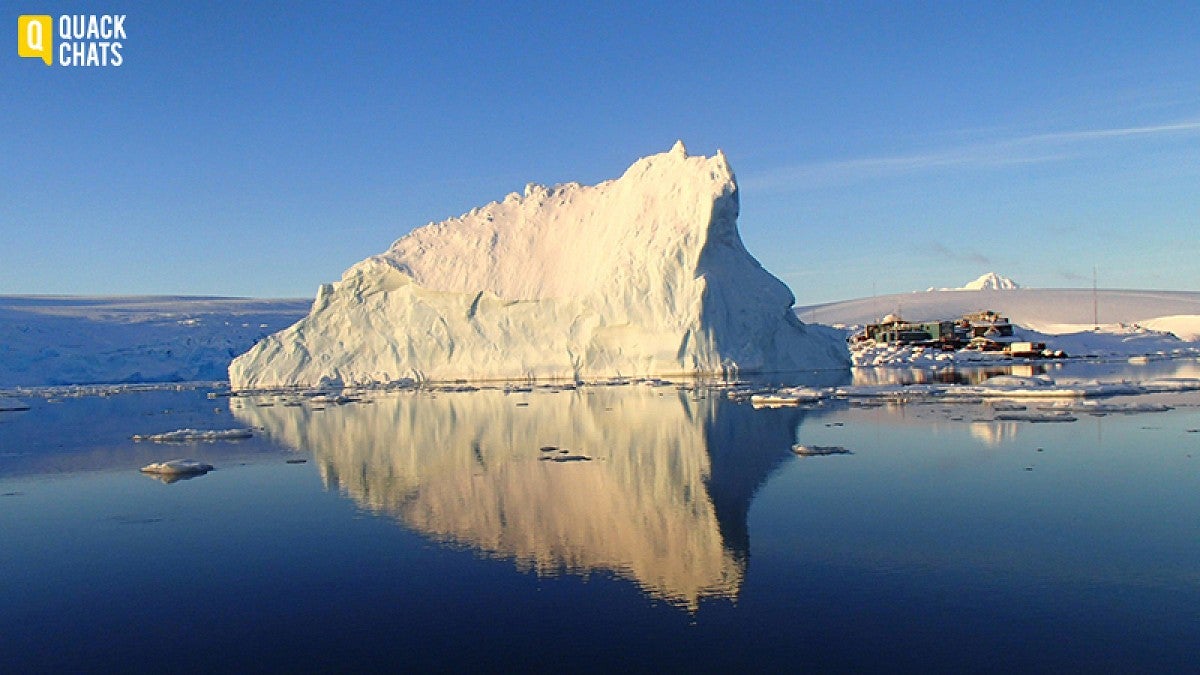Fish that adapted to survive in the frigid waters of Antarctica offer a gateway to better understand the genetics of human aging, but the fish are being threatened by climate change, says University of Oregon biologist John Postlethwait.
That’s the message he will deliver Nov. 13 in a Quack Chats pub talk at Eugene’s Downtown Athletic Club, 999 Willamette St. The talk will begin at 6 p.m. in the third-floor’s Ax Billy Grill.
“These are remarkably beautiful and complex animals,” said Postlethwait, a professor emeritus and member of the UO’s Institute of Neuroscience. “Climate change is threatening them. We need to study them more before they become extinct or try to change the conditions so that we limit the effects of climate change and maybe reduce the chances of extinction.”
Postlethwait traveled five times to Antarctica between 2008 and 2018 with funding from the National Institutes of Health and National Science Foundation. He has studied dragonfish and icefish, primarily the low bone mineralization that evolved in bottom-dwelling icefish to allow them to increase their buoyancy and rise in the water column to feed.
That adaptation of turning off certain genes to become less dense in the absence of swim bladders – think lungs in humans – began about 30 million years ago as Antarctic waters cooled. Today’s seawater temperature there hovers just below the freezing point of fresh water.
“The bones in these fish look like old people’s bones,” said Postlethwait, who ran a marathon in Antarctica during one of his research trips. “As people age, they turn off or turn down the genes that are important for maintaining bone health.”

In his talk, “Dragons and Icefish: Surviving Frigid Antarctic Seas,” he’ll detail the biology and molecular genetics of these Antarctic fish and how they hold genetic clues that may be useful for understanding anemia, oversized hearts and low bone-mineral density in humans.
The potential human health payoff was boosted earlier this year when an international team that included Postlethwait and six other UO researchers published the complete genome sequence for Antarctic blackfin icefish.
To learn more about upcoming Quack Chats, see the Quack Chats section on Around the O. A general description of Quack Chats and a calendar of additional Quack Chats and associated public events also can be found on the UO’s Quack Chats website.
—By Jim Barlow, University Communications


